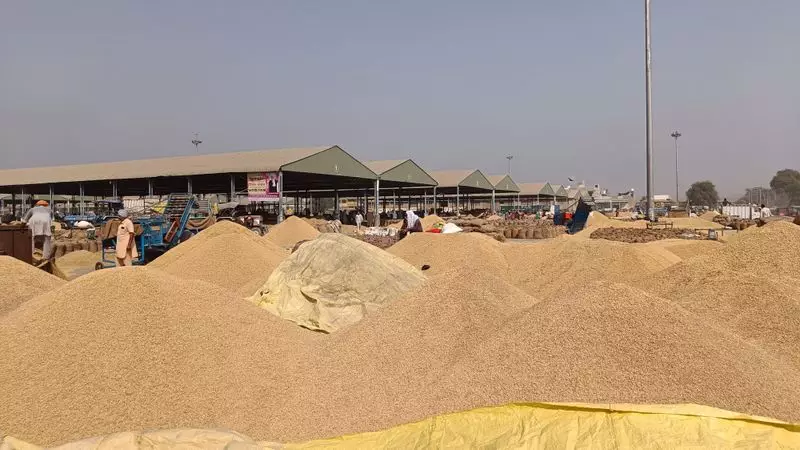
For the third consecutive day, farmers in Fazilka district are staring at an uncertain future as government procurement agencies have completely halted paddy purchases across various grain markets. The sudden stoppage has left agricultural producers with their freshly harvested crops and nowhere to sell them.
Procurement Targets Met, Farmers Forgotten
Official sources confirm that government agencies have achieved their procurement targets for the current season, leading to the abrupt closure of purchasing operations. While this might appear as administrative efficiency on paper, the ground reality tells a different story altogether.
Farmers who rushed to complete their harvesting operations now find themselves trapped in a logistical nightmare. The very agencies meant to support agricultural livelihoods have left them stranded at the brink of potential financial ruin.
The Human Cost of Bureaucratic Decisions
The situation in grain markets across Fazilka presents a grim picture. Paddy sacks pile up as anxious farmers keep vigil, hoping for a change in policy. The uncertainty compounds their troubles, with concerns about crop quality deterioration and additional transportation costs mounting with each passing day.
"We completed harvesting expecting the procurement system to function as promised," shares a distressed farmer from the area. "Now we're told the targets are met, but what about our crops? Who will take responsibility for our losses?"
Broader Implications for Punjab Agriculture
This procurement halt raises serious questions about the planning and execution of agricultural support systems in Punjab. The timing couldn't be worse for farmers who have invested significant resources in the current cropping season.
The Fazilka incident highlights the critical need for more flexible and responsive procurement mechanisms that can adapt to ground realities rather than being driven solely by predetermined targets.
As the standoff continues, the agricultural community watches closely, aware that the outcome in Fazilka could set precedents for procurement policies across the state and potentially affect thousands of farming families dependent on timely government intervention.






